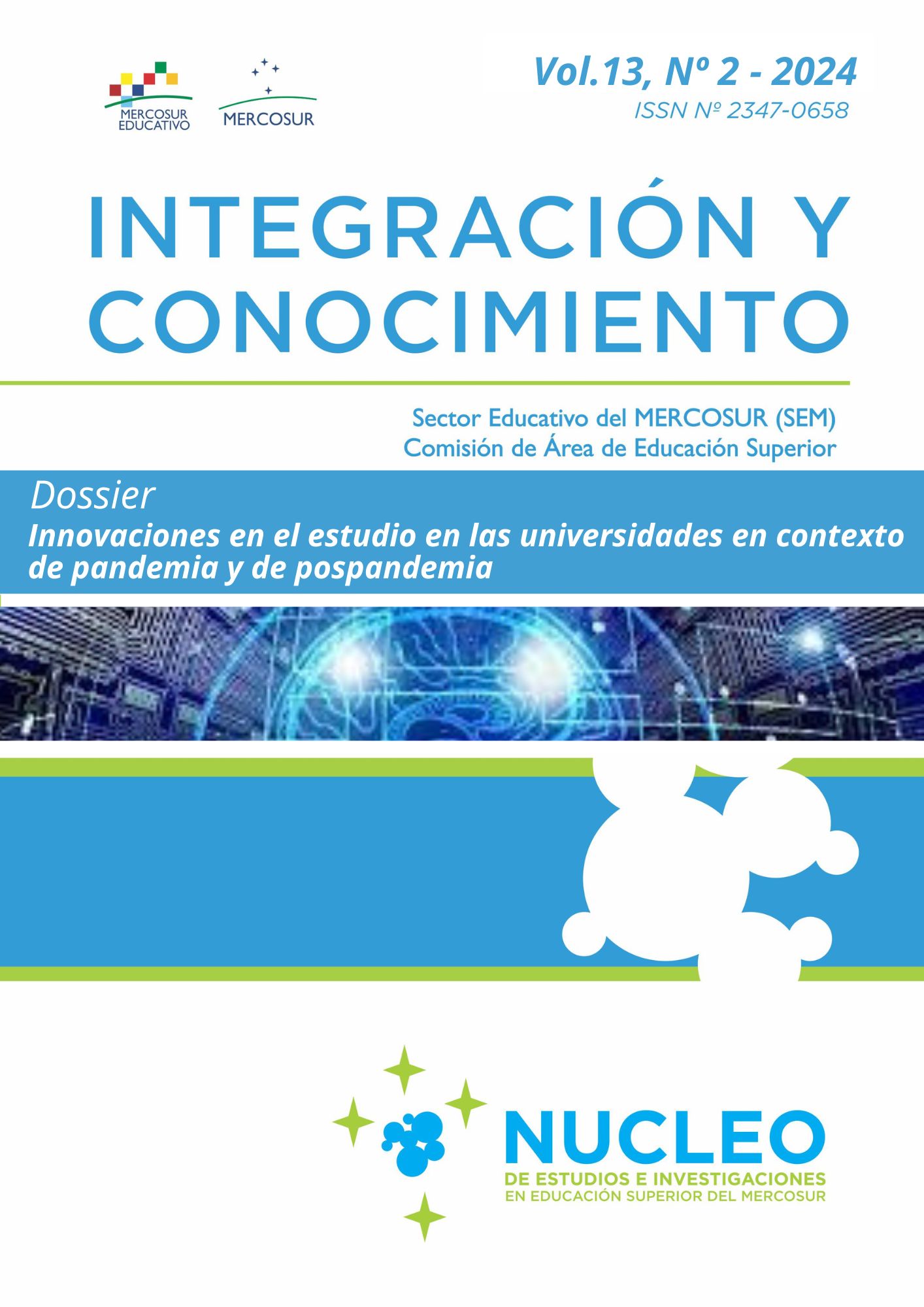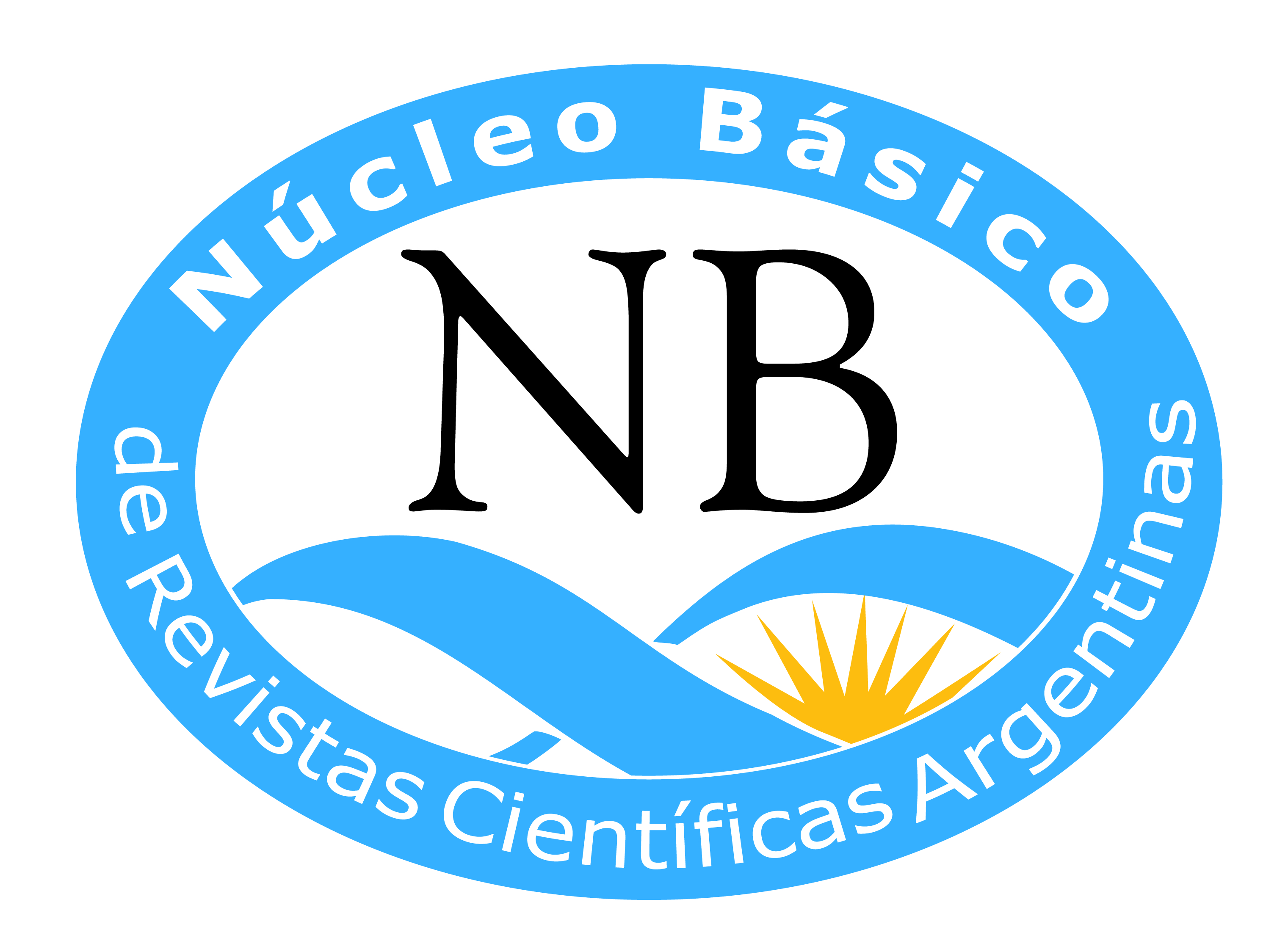INTENSIFICATION OF ACADEMIC WORK, WHAT THE PANDEMIC REVEALS
Keywords:
intensification, academic work, pandemic, public universityAbstract
The article presents the emerging knowledge at the intersection of the pandemic as a social event and the intensification of academic work in the Uruguayan public university. It is part of a broader research that seeks to understand the teaching experience of university professors in a social and institutional context marked by processes of diversification, intensification and individualization of academic life. It was based on a qualitative methodology with in-depth interviews that covered dimensions of the biographies and academic paths of male and female experienced professors with levels 3, 4 and 5, from the three macro-areas of the University. From their voices, the pandemic appears as an exacerbation of what was already happening: remote working, the availability to always be connected, the non-separation of free and work time, or of the university space and the home. Professors experience themselves as subjects of the moment, required to react faster and faster, affected by dizzying production times and the permanent need to define times, spaces, priorities in relation to a heterogeneity of tasks to take care of. They are torn between the suffering caused by the demands they put on themselves, the intensification of academic work, and the love of their discipline, of research, of teaching, of extension. Nowadays, post-pandemic times invite us not to forget, to stop and reflect, to get in touch with The Slow Professor.
Downloads
References
Achilli, E. (2004). De políticas educativas y otredades próximas (reflexiones sobre algunas transformaciones socioculturales del campo universitario). VII Congreso Argentino de Antropología Social.
Alvárez Pedrosian, E. (2010). Tras la exploración de lo cualitativo y singular. Fenomenología, hermenéutica y más allá. De la epistemología a la metodología y viceversa. Universidad de la República, Uruguay.
Araujo, A. M. (2013). Todos los tiempos, el tiempo. Trabajo y vida cotidiana en la Hipermodernidad. Editorial Conquista y Triunfo.
Bárcena, F. (2020). ¿Qué significa dar una clase? Sobre profesores y estudiantes. Recuperado de: https://www.cuartopoder.es/ideas/2020/06/04/que-significa-dar-una-clase-sobre-profesores-y-estudiantes
Berg, M. & Seeber, B. (2022). The Slow Professor: desafiando la cultura de la rapidez en la academia. Granada. Editorial Universidad de Granada
Bordoli, E. y Conde, S. (2016). El progresivo encanto por la gestión privada: análisis de los modelos de la gestión pública-privada en enseñanza media en Uruguay (2002-2013). Educ.Soc. 37 (134), pág.73-90.
Chaui, M. (2018). La ideología de la competencia. De la regulación fordista a la sociedad del conocimiento. Futuro Anterior Ediciones/Nuevos emprendimientos Editoriales (NED).
De Gaulejac, V. y Aubert, N. (2017). El costo de la excelencia. ¿Estamos tan seguros de que haya que seguir ganando siempre, incluso en el ámbito del espíritu? Entre Acacias, S.L.
De Gaulejac, V. (2009). Prefacio. En El porvenir de la sensibilidad, los sentidos y los sentimientos en cuestión. Nueva Visión.
Dejours, Ch. (2015). El sufrimiento en el trabajo. Topia Editorial.
Didriksson Takayanagui, A. (2022). Jornadas de Investigación en Educación Superior (JIES, 2021) -UDELAR. Conferencia inaugural. Integración Y Conocimiento, 11(2), 111–119. Recuperado de: https://revistas.unc.edu.ar/index.php/integracionyconocimiento/article/view/38436
Han, B-Ch. (2021). La sociedad paliativa. Herder Editorial.
Han, B-Ch. (2015). El aroma del tiempo. Un ensayo filosófico sobre el arte de demorarse. Herder Editorial.
Han, B-Ch. (2012). La sociedad del cansancio. Herder Editorial.
Lipovestky, G. (2018). El individualismo en la época hipermoderna. Universidad Diego Portales. Recuperado de: https://www.youtube.com/watch?v=_uQjdAueTUQ.
Ruiz Barbot, M. Fraga, S., Pereda, C., & Villaverde, M. (2022) Pandemia e intensificación del trabajo docente en la universidad pública. De Prácticas y Discursos. Cuadernos de Ciencias Sociales, (11), N°18.
Sanchez Cerón, M. (2018). La intensificación del trabajo docente en tres países latinoamericanos. Voces y silencios. Revista Latinoamericana de Educación, 9 (1), pp. 4-27.
Sánchez López, C. & Martínez Alcántara, S. (2014). Condiciones de trabajo de docentes universitarios, satisfacción, exigencias laborales y daños a la salud. Salud de los Trabajadores, 22 (1), pp.19-28.
Sennet, R. (2000). La corrosión del carácter. Las consecuencias personales del trabajo en el nuevo capitalismo. Anagrama Colección Argumentos.
Skliar, C. (2020). Prólogo: Del Elogio del estudio. En Elogio del Estudio. Miño y Dávila.
Simons, M. y Masschelein, J. (2014). Defensa de la escuela. Una cuestión pública. Miño & Dávila.
Sisto, V. (2012). Identidades Desafiadas: Individualización, Managerialismo y Trabajo Docente en el Chile Actual. Scielo-Psykhe, 21 (2), pp. 35-46.
Terigi, F. (2020). Aprendizaje en el hogar comandado por la escuela: cuestiones de descontextualización y sentido. En Pensar la educación en tiempos de pandemia. Entre la emergencia, el compromiso y la espera. Editorial Universitaria. Libro digital, PDF-(Políticas educativas; 6).
Universidad de la República (1958). Ley Orgánica de la Universidad de la República. Ley 12.549de16/X/1958. Recuperado de: https://dgjuridica.udelar.edu.uy/ley-organica/
Villagra, M. A. (2015). El actual trabajo docente universitario en Argentina: alertas para repensar. Educar em Revista, 57, pp.115-129.
Walker, V. (2021). Trabajo docente y capitalismo académico. Girando las lentes para comprender el trabajo cotidiano en la universidad contemporánea. Praxis Educativa 25(3), pp.1-18.
Walker, V. (2017). El trabajo docente universitario como práctica relacional: sujetos, saberes e instituciones. Educación, Lenguaje y Sociedad, 14(14), pp. 1-35.
Walker, V. (2016). El trabajo docente en la universidad: condiciones, dimensiones y tensiones. Perfiles Educativos, 38 (153), pp. 105-119.
Downloads
Published
Issue
Section
License
Copyright (c) 2024 Integración y Conocimiento

This work is licensed under a Creative Commons Attribution-NonCommercial-ShareAlike 4.0 International License.
Authors who have publications with this journal accept the following terms:
a. Authors shall retain their copyright and guarantee the journal the right of first publication of their work, which shall simultaneously be subject to the Creative Commons License of Recognition which allows third parties to share the work as long as its author is indicated and its first publication is this journal.
b. Authors may adopt other non-exclusive licensing agreements for the distribution of the published version of the work (e.g., depositing it in an institutional telematic archive or publishing it in a monographic volume) provided that the initial publication in this journal is indicated.
c. Authors are allowed and encouraged to disseminate their work via the Internet (e.g. in institutional telematic archives or on their website) after publication of the article, which may lead to interesting exchanges and increased citations of the published work. (See The Effect of Open Access).



